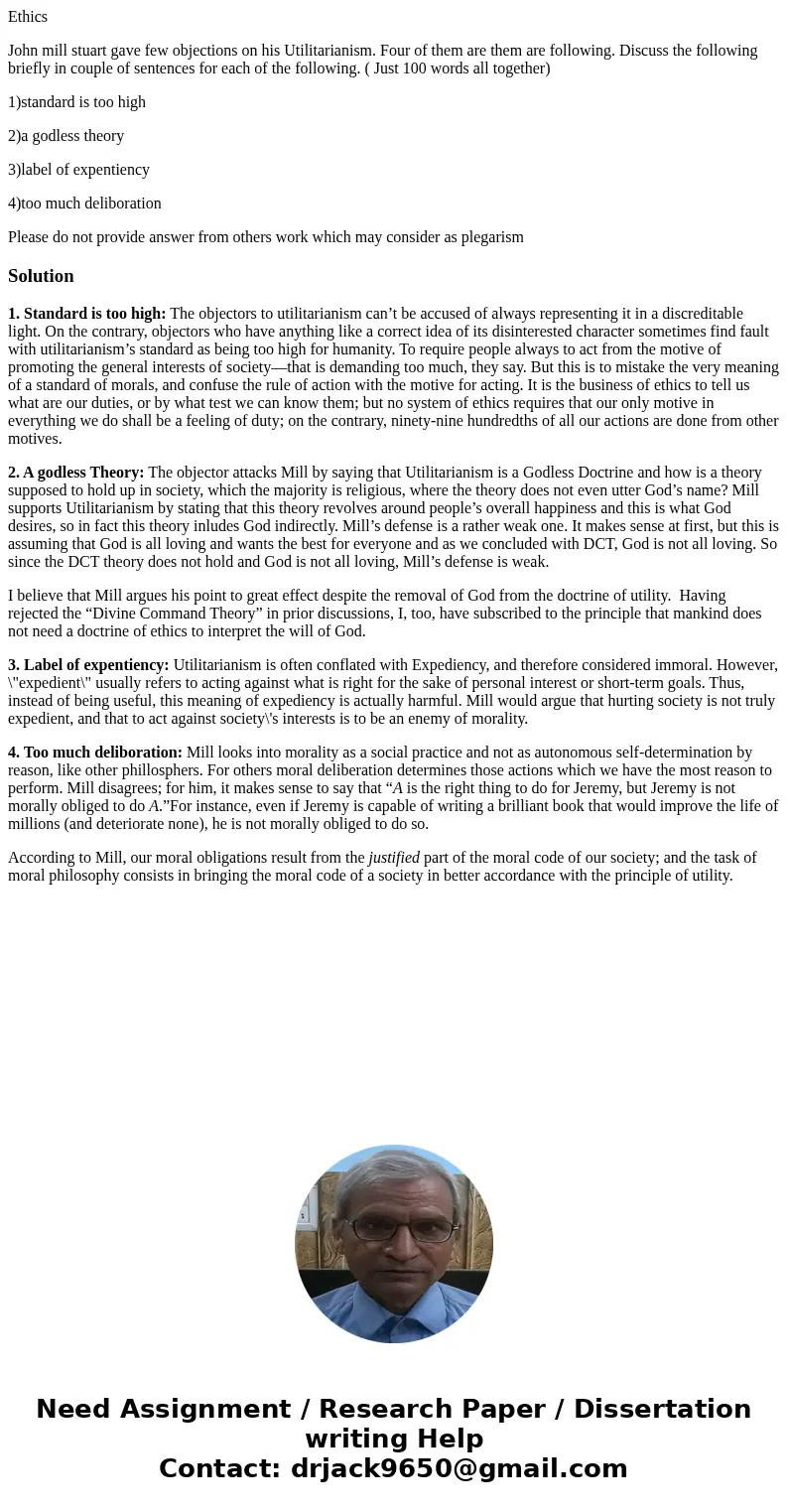Ethics John mill stuart gave few objections on his Utilitari
Ethics
John mill stuart gave few objections on his Utilitarianism. Four of them are them are following. Discuss the following briefly in couple of sentences for each of the following. ( Just 100 words all together)
1)standard is too high
2)a godless theory
3)label of expentiency
4)too much deliboration
Please do not provide answer from others work which may consider as plegarism
Solution
1. Standard is too high: The objectors to utilitarianism can’t be accused of always representing it in a discreditable light. On the contrary, objectors who have anything like a correct idea of its disinterested character sometimes find fault with utilitarianism’s standard as being too high for humanity. To require people always to act from the motive of promoting the general interests of society—that is demanding too much, they say. But this is to mistake the very meaning of a standard of morals, and confuse the rule of action with the motive for acting. It is the business of ethics to tell us what are our duties, or by what test we can know them; but no system of ethics requires that our only motive in everything we do shall be a feeling of duty; on the contrary, ninety-nine hundredths of all our actions are done from other motives.
2. A godless Theory: The objector attacks Mill by saying that Utilitarianism is a Godless Doctrine and how is a theory supposed to hold up in society, which the majority is religious, where the theory does not even utter God’s name? Mill supports Utilitarianism by stating that this theory revolves around people’s overall happiness and this is what God desires, so in fact this theory inludes God indirectly. Mill’s defense is a rather weak one. It makes sense at first, but this is assuming that God is all loving and wants the best for everyone and as we concluded with DCT, God is not all loving. So since the DCT theory does not hold and God is not all loving, Mill’s defense is weak.
I believe that Mill argues his point to great effect despite the removal of God from the doctrine of utility. Having rejected the “Divine Command Theory” in prior discussions, I, too, have subscribed to the principle that mankind does not need a doctrine of ethics to interpret the will of God.
3. Label of expentiency: Utilitarianism is often conflated with Expediency, and therefore considered immoral. However, \"expedient\" usually refers to acting against what is right for the sake of personal interest or short-term goals. Thus, instead of being useful, this meaning of expediency is actually harmful. Mill would argue that hurting society is not truly expedient, and that to act against society\'s interests is to be an enemy of morality.
4. Too much deliboration: Mill looks into morality as a social practice and not as autonomous self-determination by reason, like other phillosphers. For others moral deliberation determines those actions which we have the most reason to perform. Mill disagrees; for him, it makes sense to say that “A is the right thing to do for Jeremy, but Jeremy is not morally obliged to do A.”For instance, even if Jeremy is capable of writing a brilliant book that would improve the life of millions (and deteriorate none), he is not morally obliged to do so.
According to Mill, our moral obligations result from the justified part of the moral code of our society; and the task of moral philosophy consists in bringing the moral code of a society in better accordance with the principle of utility.

 Homework Sourse
Homework Sourse